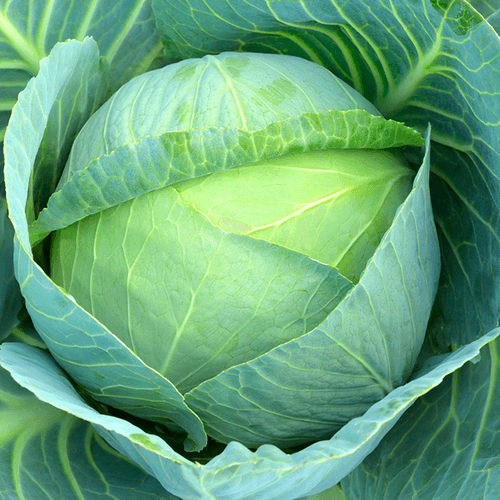
Background
Different types of cabbage are grown for food. Cabbage leaf contains high amounts of vitamin K1, as well as other nutrients. It also contains chemicals that might help prevent cancer and help with wound healing.
People use cabbage for hard, painful breasts during breastfeeding. It is also used for cancer, knee pain, osteoarthritis, and many other conditions, but there is no good scientific evidence to support these uses.
Don't confuse cabbage with other varieties of the Brassica oleracea species, including broccoli, broccoli sprout, Brussels sprout, cauliflower, collard, kale, and kohlrabi. These are not the same.
Safety Safety definitions
When applied to the skin: Cabbage is possibly safe for most people when used short-term. It's usually well-tolerated. Pain, itching, and burning have been reported after keeping cabbage leaves on the skin without moving for 2-4 hours, but this is uncommon.
Special Precautions & Warnings:
Pregnancy: Cabbage is commonly consumed in foods. But there isn't enough reliable information to know if it is safe to use in larger amounts as medicine while pregnant. Stay on the safe side and stick to food amounts.Breast-feeding: Cabbage is likely safe when applied to the skin for a short amount of time while breast-feeding. But there isn't enough reliable information to know if cabbage is safe when taken by mouth in medicinal amounts while breast-feeding. Stay on the safe side and stick to food amounts.
Allergy to vegetables from the Brassicaceae/Cruciferae family: People who are allergic to cabbage relatives from the Brassicaceae/Cruciferae family, such as broccoli, Brussels sprout, and cauliflower, might also be allergic to cabbage.
Under-active thyroid gland (hypothyroidism): Cabbage might make this condition worse. Check with your healthcare provider before consuming cabbage if you have an under-active thyroid gland.
Surgery: Cabbage might affect blood sugar levels and could interfere with blood sugar control during and after surgery. Stop using cabbage at least 2 weeks before a scheduled surgery.
Effectiveness
- Hard, painful breasts during breastfeeding. Applying whole cabbage leaves to the breasts seems to be about as effective as chilled gel-packs in relieving swelling and pain from breastfeeding.
Dosing & administration
Interactions with pharmaceuticals
Acetaminophen (Tylenol, others)
Interaction Rating=Moderate Be cautious with this combination.
The body breaks down acetaminophen to get rid of it. Cabbage might increase the breakdown of acetaminophen. Taking cabbage along with acetaminophen might decrease the effectiveness of acetaminophen.
Medications changed by the liver (Cytochrome P450 1A2 (CYP1A2) substrates)
Interaction Rating=Moderate Be cautious with this combination.
Some medications are changed and broken down by the liver. Cabbage might change how quickly the liver breaks down these medications. This could change the effects and side effects of these medications.
Medications changed by the liver (Glucuronidated Drugs)
Interaction Rating=Moderate Be cautious with this combination.
Some medications are changed and broken down by the liver. Cabbage might change how quickly the liver breaks down these medications. This could change the effects and side effects of these medications.
Medications for diabetes (Antidiabetes drugs)
Interaction Rating=Moderate Be cautious with this combination.
Cabbage might lower blood sugar levels. Taking cabbage along with diabetes medications might cause blood sugar to drop too low. Monitor your blood sugar closely.
Oxazepam (Serax)
Interaction Rating=Moderate Be cautious with this combination.
The body breaks down oxazepam to get rid of it. Cabbage can increase how quickly the body gets rid of oxazepam. Taking cabbage along with oxazepam might decrease the effectiveness of oxazepam.
Warfarin (Coumadin)
Interaction Rating=Moderate Be cautious with this combination.
Cabbage contains large amounts of vitamin K. Vitamin K is used by the body to help blood clot. Warfarin is used to slow blood clotting. By helping the blood clot, cabbage might decrease the effectiveness of warfarin. Be sure to have your blood checked regularly. The dose of your warfarin might need to be changed.




